Bringing LevMed Mobile ECG Kit to Developing Countries
- Aug 26, 2017
- 7 min read
Being able to combine a desire, a passion, a purpose, with true contribution and business is a gift to be truly grateful for.
I’m not sure where or how this desire originated, but about four years ago I added a couple of pictures to my vision board. They show a stethoscope, the world, and airplane routes between continents. For me they represent this internal desire for bringing medical technology, mobile health, and medical education to developing countries, to places and people in remote places and rural areas, to places and people who truly need them.
About three years ago, Yuval Zuk offered me to join as partner in LevMed, a medical device company developing and producing innovative cardiology products.
Two years ago, while in India, on a flight from Mumbai to Delhi, I told Yuval that I do not know the details yet, how, when, where, but it is clear in my mind that we will bring our mobile health technology to developing countries, to rural areas.
A year ago we received an email from Dr. John Kellett. John asked to purchase a couple of our products. Specifically, he requested to buy our reusable ECG Belt used to perform 12-lead ECG assessments.
To shortly explain, a 12-lead ECG assessment is a basic clinical assessment used to detect any sign of heart problem. Based on these signs, immediate treatment can be provided and lives can be saved. Our mobile ECG allows anyone, even those with no clinical experience, to perform a Hospital Grade 12-lead ECG assessment, anywhere in the world, obtain the results on any iPhone or iPad, including automatic interpretation, and, in case needed, easily send the results to a professional for diagnosis and treatment advice to be provided.
I wrote back to John saying that we do not sell directly to end users, rather we sell only in minimum quantities of 10 belts, usually to distributors or large facilities. But he insisted. So I insisted as well. I started asking many questions – Why? What’s the purpose? Where will it be used? Not the usual conversation between a marketing/sales person and a potential customer. But we know now there was a reason.
Turns out that John is an Irish physician who has been doing work in Uganda for many years. About a year ago he started a project in Kitovu hospital, in Masaka, Uganda, together with the Medical Director of the hospital, Dr. Martin Opio. In this project, they are using an innovative software to collect patient’s vital signs so to calculate a score based on which the risk of the patient and the level of emergency and type of the treatment necessary is determined. They wanted to use our ECG Belt so to include also ECG assessments in this project.
Kitovu Hospital. A missionary rural hospital in Masaka, Uganda. About 3 hours drive from Kampala.



Dr. Opio explained that, at that time, hardly any ECG assessments were performed at the hospital. Maybe only once a month, by himself, the Medical Director, only when the patient had an irregular heart beat or another clear manifestation of cardiac issue. This had been the case for many years, for several reasons:
•Traditional ECG assessments require disposable electrodes – these are very difficult to obtain in such a rural location.

•Unique ECG paper was also required to print out the results. This paper is expensive, difficult to obtain, and the printing would be erased from the paper after a certain time.
•Using disposable electrodes requires experience in application. The nurses do not know how to place the electrodes and fear making mistakes.

•All these resulted in a fairly significant price to the patient – an ECG assessment was performed only when the patient agreed to pay an additional 20,000 Ugandan Shillings (=$4) for the ECG assessment. A price expensive for the population attending this rural hospital.
ECG assessments were so rarely performed, that an old ECG device was stored away in a back
room of the medical ward, and a brand new ECG, that was donated to the hospital, worth about $3000, was left in its original package for over 2 or 3 years.
So we decided to support this project and, ten months ago, we donated a couple of our LevMed
Mobile ECG Kits. In return we asked only to receive feedback about the use of our device in this environment.

We figured that just as our ECG belt is used in remote locations, on airlines, cruise ships, oil rigs, where there is no professional, it can also provide significant added value in rural hospitals and clinics.
A month ago I arrived to Kitovu hospital. A flight to Addis Ababa, then a flight to Entebbe, then a 4 hour drive to Kitovu Hospital, passing through the equator. My first time to Africa. Amazed by this beautiful green country. Uganda.
I spent 10 days in this missionary hospital, Kitovu, in rural Uganda.
Dr. Maura Lynch, an Irish Sister of the Medical Missionaries of Marry, was kind enough to invite me to stay in a perfect modest room in her convent. Just beside the prayer room where she and Fidelis sang so beautifully prayers every Saturday evening. Sister-Dr. Maura has been in Kitovu Hospital for many years, where she established and is still the Director of the first Fistula Repair and Training Unit in East Africa, providing her support to the hospital in any way she can.

At the convent, before every meal we blessed our food, our friends, our life we are so grateful for. All to the music of Edelweiss, from the Sound of Music. And when we all had just a bit (enough) to drink we also sang all the songs of the Sound of Music together. Me, beautiful Ugandan Dr. Fidelis, an intern in the hospital, living at Maura’s convent, and Irish Sister Maura.


I am so grateful for these 10 days. I feel so blessed for having such an experience, spending time with such beautiful, caring, so kind, generously giving people.

During this amazing visit I learned that in the 10 months that passed since we donated our LevMed Mobile ECG Kits, almost 2,000 ECG assessments were performed by Immacculate and Teopista, two young ladies who just graduated from nursing school, not having any previous experience with ECG assessments.
In the western world, the importance of a 12-lead ECG assessment has been long well established. It is performed in any routine or annual check-up and upon any admittance to a clinic or hospital. And yet, in many developing countries, this is not yet the case.
But the data collected in Kitovu with our ECG Mobile Kit indicates that ECG assessments may be a necessity also in the developing world. The data collected demonstrates that Left Ventricular Hypertrophy (LVH) is diagnosed in at least 20% of the patients admitted to the Medical Ward. The presence of LVH is important clinically because it is associated with increased cardiovascular risk, which can lead to devastating results like heart failure, MI, sudden cardiac death, and other. Doing an ECG assessment can easily diagnose LVH and allow treatment to be provided in a timely manner.
In my discussions with the clinical staff at the hospital they described how they usually treat patients for Malaria and different infectious disease. Yet, there are still occurrence of unexplained sudden death. Non-communicable disease, such as hypertension and LVH may be the cause for some of these incidences. Without an ECG assessment these cannot be diagnosed. With an ECG assessment these can be easily treated and prevented.
This finding is well supported by the World Health Organization, which has presented data demonstrating that out of 17 million premature deaths due to noncommunicable diseases in 2015, 82% are in low and middle-income countries, and 37% are caused by CVDs. It has been clearly determined that people with cardiovascular disease or who are at high cardiovascular risk need early detection and management suing counselling and medicines, as appropriate.
Our LevMed Mobile ECG Kit provides exactly that. In an affordable, simple to use manner, it enables anyone to be screened for cardiac risks, diagnosed, and then easily treated appropriately. We believe that a simple ECG can be performed as part of the outpatient assessments done for any patient arriving to the hospital or to any clinic.

Furthermore, some discussions with Dr. Martin Opio and the clinical staff at Kitovu Hospital revealed that with our ECG Mobile Kit the hospital can sustain a valid business model that will allow all patients to be screened. In Kitovu, for example, a rural hospital, about 50 adults arrive to the outpatient clinic daily. It is enough to test 50 patients a day at only $1 per test, to recover the cost of our LevMed Mobile ECG Kit as well as the annual salary of the nurse after about 2-3 months, leaving the hospital with a margin of several thousand dollars.
A portion of the margin generated, we hope, will be used to support some of the patients in the Medical Ward who currently cannot afford the treatment and medication they require.
Being able to combine a desire, a passion, a purpose, with true contribution and business is a gift to be truly grateful for. This is what we believe in. This is what we strive to do.
This is what we would like to focus on and expand. Bringing simple TeleHealth solutions to remote locations and rural areas. We are now moving forward, introducing our LevMed Mobile ECG Kit in more developing countries, rural hospitals and clinics, and remote locations. These activities and projects entail many possibilities for collaboration with other medical device companies, internet service providers, Apple hardware providers, pharmaceutical companies, research institutions, and other. We welcome such collaborations. Expanding the use of our LevMed Mobile ECG Kits will definitely allow the right treatment to be provided in a timely manner to so many individuals all around the world.

LevMed Mobile ECG Kit
Providing an easy-to-use affordable solution for cardiac screening in developing countries.
Contact us: info@levmed.net

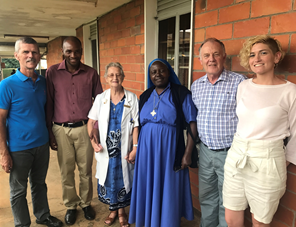
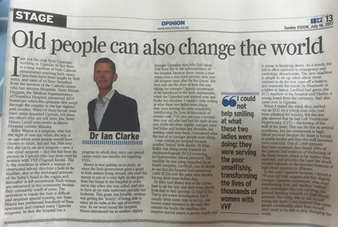

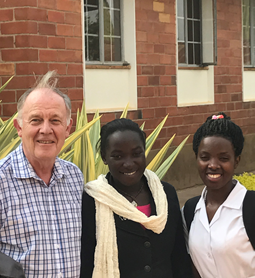
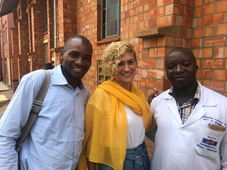


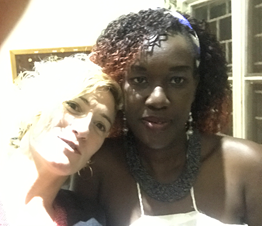
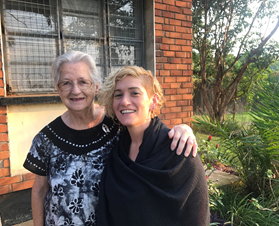









Comments